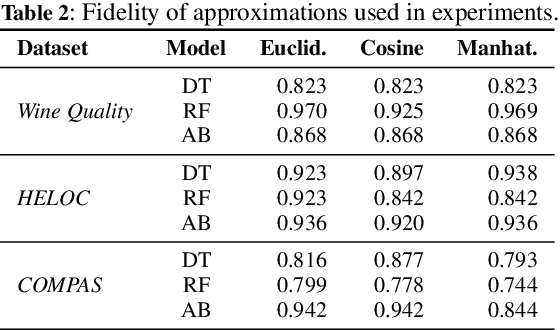Actionable Interpretability through Optimizable Counterfactual Explanations for Tree Ensembles
Paper and Code
Nov 27, 2019



Counterfactual explanations help users understand why machine learned models make certain decisions, and more specifically, how these decisions can be changed. In this work, we frame the problem of finding counterfactual explanations -- the minimal perturbation to an input such that the prediction changes -- as an optimization task. Previously, optimization techniques for generating counterfactual examples could only be applied to differentiable models, or alternatively via query access to the model by estimating gradients from randomly sampled perturbations. In order to accommodate non-differentiable models such as tree ensembles, we propose using probabilistic model approximations in the optimization framework. We introduce a novel approximation technique that is effective for finding counterfactual explanations while also closely approximating the original model. Our results show that our method is able to produce counterfactual examples that are closer to the original instance in terms of Euclidean, Cosine, and Manhattan distance compared to other methods specifically designed for tree ensembles.
 Add to Chrome
Add to Chrome Add to Firefox
Add to Firefox Add to Edge
Add to Edge